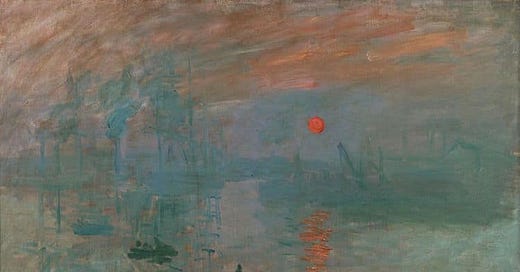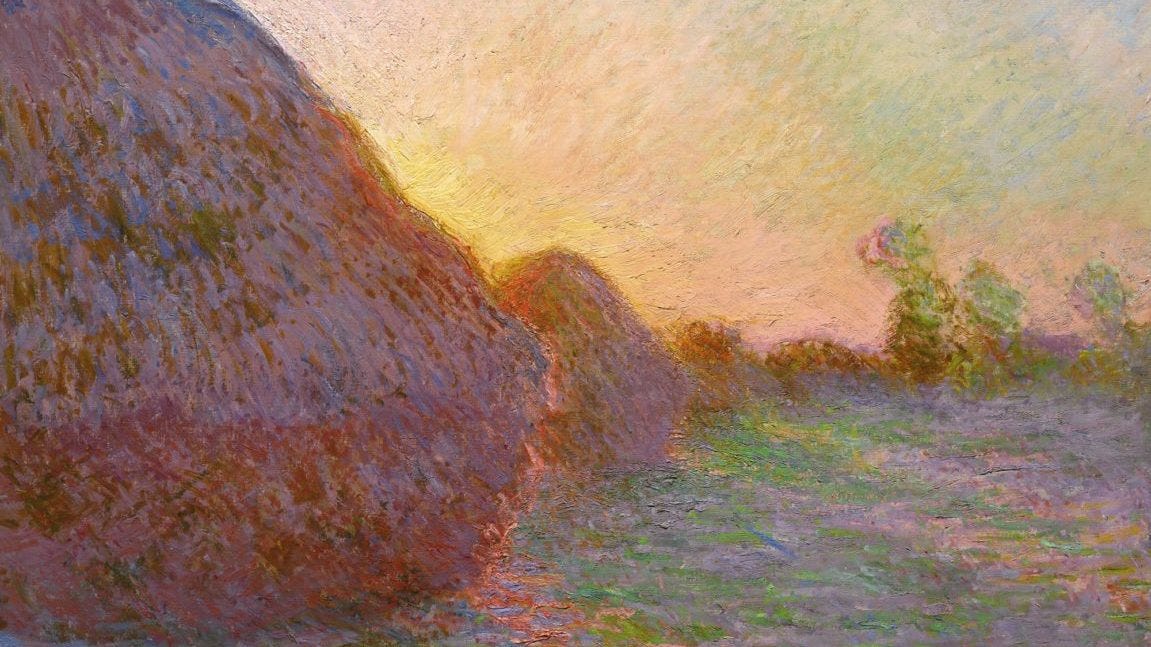My social life has been one of extremes the past two years. 2019 was filled with busyness. Whether leading a small group or belonging to a small group or attending a church function or volunteering at a church function or needing to meet so-and-so for coffee or dinner or dessert, my schedule was full of what was 21st Century Christian living.
2020, however, became completely other. That Friday night in March, the one when the world shut down, a best friend had to bring me outside for some fresh air in order to talk me away from a panic attack. The path ahead felt foreign, alien and daunting.
The path ahead became all of those things, but more than anything it was an ominous quiet. How was I supposed to serve God, to relate with God, when everything was still?
What would I find in my own heart if the noise of the world were silenced? Who would I be?
-Kathleen Norris (The Cloister Walk, 295)
In Luke 10, Jesus visits Mary and Martha. Martha has invited him, and the two sisters react to his presence in opposite ways: Martha busies herself in serving the esteemed guest while Mary sits at Jesus’s feet and listens to his teaching.
After a while, Martha comes up to Jesus and says, “Lord, do you not care that my sister has left me to serve alone? Tell her then to help me.” Martha is indignant, frustrated.
Jesus responds,
“Martha, Martha, you are anxious and troubled about many things, but one thing is necessary. Mary has chosen the good portion, which will not be taken away from her.”
In that particular space and context, it was Mary’s presence that was needed more than Martha’s service.
Our souls have been conditioned to do something so extraordinarily impressive and effectual that a year of quarantining, distancing, and being still feels like a betrayal to our Christian witness.
Martha is my 2019 and Mary is my 2020. The only difference is that Mary chose to sit at Jesus’s feet. I have been forced out of my routine, and I do not want to sit.
“Drew, Drew, you are anxious and troubled about many things, but one thing is necessary.”
Am I anxious and troubled? Yes. Yet I resist the one thing necessary. I resist the better portion. Surely there is more I can be doing.
Perhaps the real work, like real prayer and real charity, must be done in secret.
-Wendell Berry (The Gift of Good Land, 281)
In 1 Kings 19, Elijah is on death’s door. He is exhausted and done with his service for the Lord. He has seen great miracles and served God faithfully, yet he is still being chased down and shoved out. Brought by an angel to a cave, he lies down, preparing to die. However, God speaks to him,
“Go out and stand on the mount before the Lord.” And behold, the Lord passed by, and a great and strong wind tore the mountains and broke in pieces the rocks before the Lord, but the Lord was not in the wind. And after the wind an earthquake, but the Lord was not in the earthquake. And after the earthquake a fire, but the Lord was not in the fire. And after the fire the sound of a low whisper. And when Elijah heard it, he wrapped his face in his cloak and went out and stood at the entrance of the cave. And behold, there came a voice to him and said, “What are you doing here, Elijah?”
Out of the chaos came a low whisper—another way of translating this is “a thin silence”—the presence of God.
For everything there is a season, and a time for every matter under heaven:
…a time to tear, and a time to sew;
a time to keep silence, and a time to speak.
-Ecclesiastes 3:1,7
2020 has seen the world crashing in around me: winds of pandemic flinging apart our societal structures and mirages of medical stability, earthquakes of long-dormant racial prejudice and violence forcing us out of our privileged malaise, and fires of conspiracy theories and enabling political rhetoric stoking overthrow and violent division. And in the midst of it all, there is the silence of my life stilled and quarantined.
A low whisper is nearly impossible to hear amidst the din of destruction all around. To even have the luxury of space and quiet is a privilege and a gift, but it is a gift I am unaccustomed to and would rather return for the lightning strike of retribution or the thunder of redemption I so often desire. Yet the Bible seems to encourage me to keep listening, and 2020 has forced me to slow down enough to tune my ears.
Wise mentors encouraged me to keep this silence, to sit with the Lord and to remember that inaction is not a dereliction of duty but perhaps an opportunity to listen. To be attentive to the Spirit, to model Mary and learn from God.
“Martha, Martha, you are anxious and troubled about many things, but one thing is necessary. Mary has chosen the good portion, which will not be taken away from her.”
-Luke 10:41-42
In Ezekiel 37, Ezekiel is surrounded by dry bones. God asks him, “Can these bones live?” and Ezekiel responds, “Sovereign Lord, you alone know.”
Then he said to me, “Prophesy to these bones and say to them, ‘Dry bones, hear the word of the Lord! This is what the Sovereign Lord says to these bones: I will make breath enter you, and you will come to life. I will attach tendons to you and make flesh come upon you and cover you with skin; I will put breath in you, and you will come to life. Then you will know that I am the Lord.’”
Ezekiel did this, and the bones came to life. In a valley of death, life was brought forth.
And after the fire the sound of a low whisper. And when Elijah heard it, he wrapped his face in his cloak and went out and stood at the entrance of the cave. And behold, there came a voice to him and said, “What are you doing here, Elijah?”
-1 Kings 19:12-13
I tried it—keeping silence—around July, and my fears were proven true: keeping silence is unnatural. My brain jumped from worry to worry, thinking about the people I hadn’t seen or the tasks I had left undone. I thought about when I would be able to leave my apartment, the frightening state of American politics, how privileged I was to sit in silence and not worry about life or safety. Anything but the crushing silence I feared could consume.
My stomach felt like weathered, forgotten bones—stale and shriveled, dried out in the sun of anxiety and inattention.
“Drew, Drew, you are anxious and troubled about many things, but one thing is necessary.”
When the worries would appear, I tried to offer them to God. “Lord, would you hold this?” Two seconds later, when another worry appeared, I tried to offer it to God again. “Lord, would you hold this?” Over and over I did this. “Lord, would you hold this?” I felt guilty asking God to hold so many things. But I kept at it.
“I will put breath in you, and you will come to life. Then you will know that I am the Lord.”
-Ezekiel 37:6
Finally, in 1 Samuel 3, the prophet Samuel is just a boy living in the temple and learning from Eli, now an old man with failing eyesight. The Bible says that “the word of the Lord was rare in those days”—injustice and the perversion of religion ran rampant in the country. The Bible also says that “Samuel did not yet know the Lord, for the word of the Lord had not yet been revealed to him.”
One night, Samuel is woken up by God calling him but mistakes it for Eli’s voice. He runs to Eli, but Eli tells him he didn’t call for him, to go back to bed.
“And the Lord called again, “Samuel!”
Again Samuel went to Eli, and again Eli sent Samuel back to bed.
Finally, a third time the Lord called Samuel, and, finally, a third time Samuel ran to Eli.
Then Eli perceived that the Lord was calling the boy. Therefore Eli said to Samuel, “Go, lie down, and if he calls you, you shall say, ‘Speak, Lord, for your servant hears.’” So Samuel went and lay down in his place.
And the Lord came and stood, calling as at other times, “Samuel! Samuel!” And Samuel said, “Speak, for your servant hears.” Then the Lord said to Samuel, “Behold, I am about to do a thing in Israel at which the two ears of everyone who hears it will tingle….”
For years Samuel had looked to Eli for guidance, but one night God woke Samuel up four times, calling his name. With Eli’s discernment, Samuel recognized the voice as God’s and received him in the silence of the temple, in the middle of the night, in a land of injustice and silence.
What would I find in my own heart if the noise of the world were silenced? Who would I be?
-Kathleen Norris (The Cloister Walk, 295)
I continued seeking silence and praying over the windstorms and earthquakes and fires of worry, “Lord, would you hold this?” People I often sought to discern the voice of God—parents, friends, pastors—directed me towards silence and trust in God’s quiet whisper. In this foreign land of quarantine, I continually prayed, “Lord, would you hold this?”
Slowly something began to happen.
“And after the fire the sound of a low whisper.”
My bone-dry-stomach began to be kneaded and stretched. I wish I could describe it better, but it felt like the Lord was slowly loosening my stomach, stretching out the decalcified bones, attaching tendons and skin, arteries and blood vessels, bringing new life. In the silence, I discovered a better portion.
It turned out, God can hold all of my worries, and he can bring new life. In a valley surrounded by death, when fearfully entering into a silence I do not want and am not used to, God meets me there and slowly brings dry bones back to life.
“Drew! Drew!”
I am learning to respond, “Speak, for your servant hears.”
God is in the silence.




